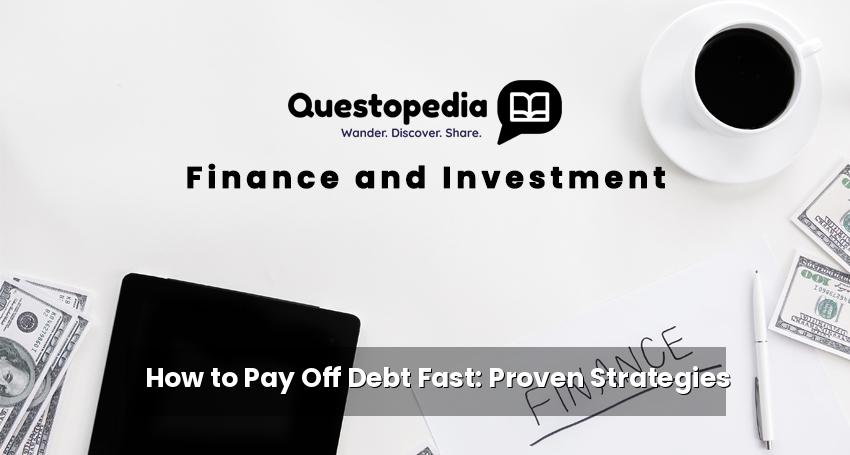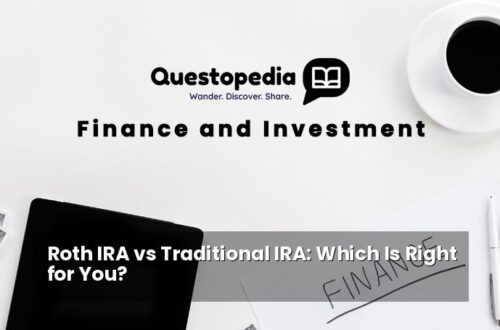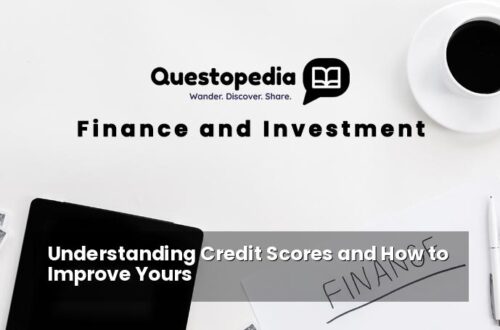How to Pay Off Debt Fast: Proven Strategies
Debt can feel like a heavy weight, constantly pulling you down and hindering your financial freedom. Whether it’s credit card debt, student loans, or a personal loan, the interest accruing can make it feel like you’re never making any progress. But don’t despair! There are proven strategies you can implement to pay off debt fast and reclaim control of your finances. This article will walk you through some of the most effective methods and provide actionable steps you can take today.
Understanding Your Debt: The First Step to Freedom
Before diving into specific strategies, it’s crucial to understand your current debt situation. This involves taking stock of all your liabilities. Create a comprehensive list that includes:
- The type of debt (credit card, student loan, personal loan, etc.)
- The creditor
- The outstanding balance
- The interest rate
- The minimum monthly payment
Having this information readily available will allow you to prioritize your efforts and choose the most effective strategy for your unique situation. Once you have this list, you can move on to creating a budget and exploring different repayment methods.
Budgeting for Debt Repayment: Laying the Foundation
A budget is the cornerstone of any successful debt repayment plan. It allows you to track your income and expenses, identify areas where you can cut back, and allocate more money towards paying off debt quickly. Here’s how to create a budget:
- Track your spending: Use a budgeting app, spreadsheet, or even a notebook to record all your income and expenses for a month.
- Categorize your expenses: Divide your expenses into categories like housing, transportation, food, entertainment, and debt payments.
- Identify areas to cut back: Look for areas where you can reduce your spending. Consider cutting back on non-essential expenses like eating out, entertainment, or subscription services.
- Allocate extra funds to debt repayment: Once you’ve identified areas to save, dedicate those funds to making extra payments on your debt.
There are many budgeting apps available to help you, such as Mint, YNAB (You Need a Budget), and Personal Capital. Choose one that works best for your needs and start tracking your finances today. Check out this NerdWallet article for free budget spreadsheets.
The Debt Snowball Method: Small Wins, Big Motivation
The debt snowball method, popularized by Dave Ramsey, focuses on paying off your smallest debt first, regardless of the interest rate. The idea is to gain momentum and motivation by achieving quick wins. Here’s how it works:
- List your debts from smallest to largest.
- Make minimum payments on all debts except the smallest one.
- Throw every extra dollar you can find at the smallest debt until it’s paid off.
- Once the smallest debt is paid, roll the payment you were making on it into the payment on the next smallest debt. This creates a “snowball” effect.
- Repeat this process until all your debts are paid off.
The debt snowball method is particularly effective for those who need a psychological boost to stay motivated. While it might not be the most mathematically efficient approach, the feeling of accomplishment from paying off debts quickly can be incredibly powerful.
The Debt Avalanche Method: Targeting High-Interest Debt
The debt avalanche method, also known as the debt stacking method, prioritizes paying off debts with the highest interest rates first. This approach is mathematically the most efficient way to pay off debt faster, as it minimizes the amount of interest you pay over time.
- List your debts from highest interest rate to lowest.
- Make minimum payments on all debts except the one with the highest interest rate.
- Throw every extra dollar you can find at the debt with the highest interest rate until it’s paid off.
- Once the highest-interest debt is paid, roll the payment you were making on it into the payment on the next highest-interest debt.
- Repeat this process until all your debts are paid off.
If you’re disciplined and motivated by saving money on interest, the debt avalanche method is likely the best choice for you.
Balance Transfers and Debt Consolidation: Lowering Interest Rates
Another strategy to consider is transferring your high-interest debt to a lower interest rate through a balance transfer credit card or debt consolidation loan. This can significantly reduce the amount of interest you pay and allow you to pay off your debt more quickly.
- Balance Transfer Credit Card: This involves transferring your balances from one or more high-interest credit cards to a new credit card with a lower interest rate, often a 0% introductory APR. Be sure to pay attention to balance transfer fees and the length of the introductory period.
- Debt Consolidation Loan: This involves taking out a new loan to pay off all your existing debts. The new loan typically has a lower interest rate and a fixed monthly payment, making it easier to manage your debt.
Before opting for a balance transfer or debt consolidation, compare offers carefully and consider the fees, interest rates, and terms of each option. Make sure you have a plan to pay off the balance within the introductory period or loan term to avoid accruing even more debt.
Increasing Your Income: Fueling Your Debt Repayment Efforts
While budgeting and different debt repayment strategies are essential, increasing your income can significantly accelerate your progress. Consider these options:
- Side Hustle: Start a side hustle to earn extra income. This could be anything from freelancing and driving for a ride-sharing service to selling products online.
- Negotiate a Raise: If you’re performing well at your current job, consider asking for a raise. Research industry standards and be prepared to demonstrate your value to your employer.
- Sell Unwanted Items: Declutter your home and sell unwanted items online or at a garage sale.
All additional income should be directly applied to your debt repayment efforts. Even a small increase in income can make a significant difference in the long run. You can also find tips and resources about building wealth and financial literacy at Questopedia.
Avoiding Future Debt: Building a Strong Financial Foundation
Paying off debt is a significant accomplishment, but it’s equally important to prevent future debt accumulation. Develop healthy financial habits such as:
- Living below your means: Spend less than you earn.
- Building an emergency fund: Save three to six months’ worth of living expenses in a readily accessible account.
- Avoiding unnecessary debt: Think carefully before taking on any new debt.
- Tracking your expenses: Continue to monitor your spending and stay within your budget.
Conclusion
Paying off debt fast is achievable with the right strategies and commitment. By understanding your debt, creating a budget, choosing a debt repayment method, considering balance transfers or debt consolidation, increasing your income, and avoiding future debt, you can reclaim control of your finances and achieve financial freedom. Start today, and you’ll be surprised at how quickly you can make progress towards a debt-free future.






